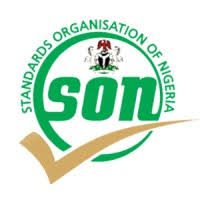


Banks re-capitalisation and its impacts on making Nigeria a $1trn economy
The Central Bank of Nigeria (CBN) is focused on achieving the ambitious goal of Nigeria’s economy attaining Gross Domestic Product (GDP) of $1 trillion by 2030 as set by President Bola Ahmed Tinubu in his Policy Advisory Council report on the national economy. Seun Ibiyemi in this report, analyses the present state of the economy.
The Central Bank of Nigeria (CBN) Governor, Dr. Olayemi Cardoso has disclosed plans to shore up the country’s Gross Domestic Product (GDP) to $1 trillion in eight years.
Gross Domestic Product (GDP) is the monetary value of all finished goods and services made within a country during a specific period. It is an internationally recognised measure of economy size and strength.
Nigeria’s GDP was recently rebased from about $270 billion to $510 billion for 2013. The increase of about 90 percent was attributed to new sectors of the economy such as telecommunications, movies, and retail which were previously not captured or underreported. As a result of the rebasing, Nigeria was adjudged the largest country in Africa and 26th largest in the world.
While asking banks to re-capitalise is quite desirable given the devaluation of the naira and high rate of inflation in recent years, it will be advisable that the CBN takes a different approach to the exercise this time around taking into cognisance the current circumstances of the Nigerian banking industry which has become a lot more democratised as a result of technological innovation, demographic demands and the weak state of the economy which will inhibit any capital raising exercise.
However, it is not enough to ask banks to recapitalise, the ultimate goal is for them to have increased capacity to positively impact the economy of the country for the benefit of the people. While the last bank capital raising exercise was deemed to be a success which attracted about $3 billion in additional equity into the Nigerian banking industry, the real benefit of a stronger financial services industry was not felt by majority of Nigerians because as of today only about 3 percent of Nigerians have access to bank loans which is roughly the same as what obtained before the bank consolidation exercise.
One of the biggest problems inhibiting the growth of the Nigerian economy is the fact that most entrepreneurs don’t have access to bank loans and this was one of the issues that the bank recapitalisation exercise of 2005 was meant to address. However, despite the success of the capital raising exercise, there was no increased flow of credit to Small and Medium Scale Enterprises (SMSEs). Rather the government’s appetite for bank credit through Treasury bills and government bonds escalated to take advantage of the increased capacity of our banks.
As a result of this, up to 70 percent of the loans given out by the banking industry are to the government at various levels and this has led to the private sector being crowded out of the money market. That said, most of the loans given to the private sector are to blue chip companies and multinational corporations thus leaving very little to support the growth of SMSEs in the country.
For the proposed bank recapitalisation exercise to have the desired effect of helping to grow the economy, there must be policies put in place to ensure that banks are incentivised to increase their lending to SMSEs (especially the productive sector) while government’s dependence on the money market should be reduced to ensure that more funds are available to the private sector to finance the growth of the economy.
Prior to the bank capital raising exercise of 2005, the categories of banks we had were limited to commercial and merchant banks which became unified by the universal banking license under which the 25 billion Naira minimum capital base was stipulated. Today, we have several categories of banks catering to various niches and it would be impractical to set the same minimum capital base for them as was done in 2005.
Unlike in 2005, we now have banks categorised into National and regional banks, interest paying and non-interest banks. We also have banks licensed as Mobile Money Operators, Payment Services Banks, Micro Finance Banks and even POS operators who provide banking services to the public. Given the democratisation of the banking industry since the last bank recapitalisation exercise, it is imperative that the CBN takes a different approach to the proposed exercise so as not to destabilise the industry.
Rather than take a rigid approach of insisting on a blanket minimum capital base for all banks which led to a lot of jobs losses in the industry then, I believe that this time around banks should be incentivised to increase their capital base while given the freedom to play at whatever level they are capable of within the industry. The CBN can for instance reduce the Cash Reserve Ratio and Capital Adequacy Ratio while increasing access to forex for higher capitalised banks to encourage banks to raise their capital to the desired levels.
In all this we must not forget that the ultimate goal of the bank recapitalisation exercise is to accumulate additional capital to finance the growth of the economy and this can only be achieved through significant increases in credit by the private sector. Thus, while we are incentivising the banks to increase their capital base, we must also be incentivising them to increase their lending to the public while also building a credit culture in our society to ensure that the system is not abused by the public who are supposed to be the ultimate beneficiaries of the bank recapitalisation exercise.
Comparison of BRICS and MINT economies
However, Mr. Cardoso seems unshaken and prepared to face the challenges ahead. According to him, the envisioned GDP target will put Nigeria in a position of much more favourable macroeconomic indices, comparable to other economies of $1.0 trillion and above, with similar population and development characteristics. As with these countries, there is an expectation that driving to this target requires improvements in productivity, employment, and key macroeconomic growth indices.
In drawing a comparison with some of these countries, Cardoso referred to selected BRICS and MINT economies, such as Brazil, Mexico, and Indonesia for their capacity to absorb economic shocks and rebound from cyclical downturns.
BRICS, established in 2006, comprises China, Brazil, Russia, India and South Africa. MINT countries refer to the economies of Mexico, Indonesia, Nigeria, and Turkey.
According to him, Brazil with a population of 215 million, Mexico 129 million, and Indonesia 275 million have 2023 unemployment rates of 7.8 percent, 3.1 percent, 5.4 percent respectively.
By comparison, KPMG, a multinational consulting firm, in a newly-released report tagged ‘KPMG Global Economy Outlook report, H1 2023, stated that the Nigerian unemployment rate had increased to 37.7 percent in 2022 and will further rise to 40.6 percent, due to the continuing inflow of job seekers into the job market.
For the CBN Governor, these are unemployment levels that “we in Nigeria should aspire to achieve, and with resolve can attain.”
Nigeria is in need of new investments, debt restructuring, and restoration of old credit lines. In a toxic political environment, Nigerian policymakers are looking for good economic news that the people can see and most importantly feel.
The President and his fiscal team have been globetrotting in the last 16 weeks in search of new investments, debt restructuring and restoration of old credit lines. There have been a lot of promises but very little cash on the table. The naira has oscillated wildly but seems to have stabilised at the current level of N1,150/$.
Nigeria’s economic challenges are consistent with its regional peers, the economic challenges are similar to some of its African peers, especially Angola, Ghana and Kenya.
The outlook is that Nigerian growth in Q4 will be stronger than Q3. The IMF and World Bank are estimating full-year 2023 growth of 2.9 percent, implying that the economy will have to expand by 4.24p ercent in Q4.
The policy-making environment is more likely to be predictable and stable, especially in exchange rate management and curtailment of the petrol and electricity subsidies in the near term. The real benefits of market reform policies are unlikely to be felt in Nigeria until Q2 2023.
Fiscal and monetary authorities
Both monetary and fiscal policies are macroeconomic tools used to manage or stimulate the economy. Monetary policy and fiscal policy together have great influence over a nation’s economy, its businesses, and its consumers.
The Minister of Finance and Coordinating Minister of the Economy, Mr. Wale Edun said that his Ministry and the Central Bank of Nigeria (CBN) are collaborating to undertake a comprehensive reform of the country’s foreign exchange market.
In terms of achieving macroeconomic stability, he said it is important to stabilise the exchange rate, to bring down inflation, and of course eventually bring down interest rates so that borrowing for investment is affordable. The collaboration would lead to the development of a new framework for the foreign exchange market.
“There is going to be a comprehensive reform of the foreign exchange market. Individual retailers (currently) are unprotected; they’re dealing in a market without rules. The intention is to have all players (operate) inside a formal market, where there is a rules-based price setting, where the smaller retailer is protected, and where speculators that deal illegally will face appropriate sanctions.
“The Central Bank of Nigeria is autonomous in terms of setting interest rates, and controlling money supply. But it is one economy, and so the foreign exchange question is something that is done with collaboration. So it will be a joint effort by the central bank, in collaboration with the Ministry of Finance, to really deliver a new framework for the foreign exchange market.”
Experts hail CBN’s planned recapitalisation of banks
Also, two financial experts have commended the Central Bank of Nigeria for its plan to further recapitalise Deposit Money Banks.
They gave the commendations in separate interviews.
Former President, Association of National Accountants of Nigeria, Dr Samuel Nzekwe described the decision of the apex bank to increase the capital base as a welcome development.
Nzekwe said that Nigerian banks needed to recapitalise because the country‘s currency had been devalued due to the rising inflation rate in the country.
According to him, the inflation is so high that what they have in the system might not be enough to back up any financial obligations that may come.
There is the need for banks to recapitalise so that they can continue to exist.
“In addition, they need to recapitalise a little bit so that they can be in strong fittings in case of any eventuality and problems,” he said.
The ex-ANAN president emphasised the need for banks to raise their capital base further to meet the challenges of the current time.
Also former Director, Research Department of CBN, Dr Titus Okunronmu said that the CBN’s planned recapitalisation of banks was a step in the right direction.
Okunronmu said it would put the banks in a better position to grant credit to the public.
He added that this would also help them to face future challenges.



